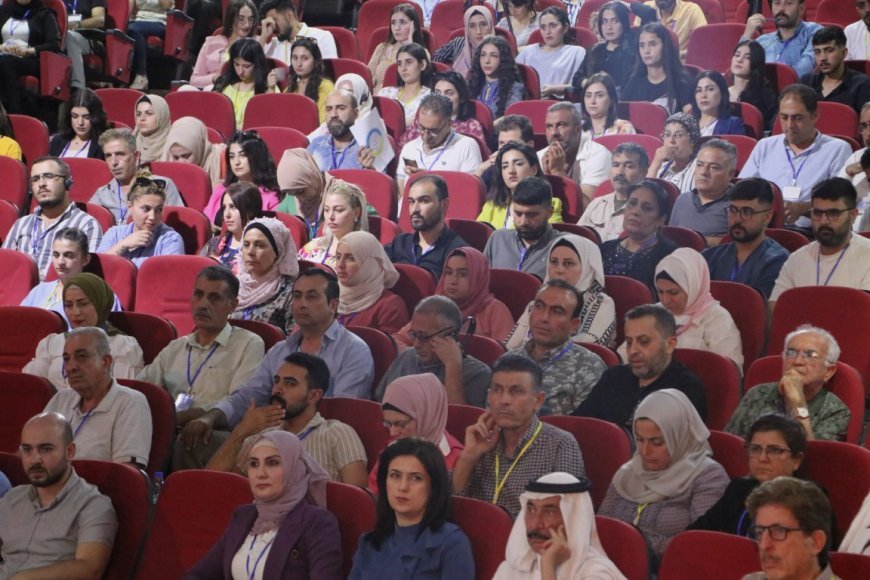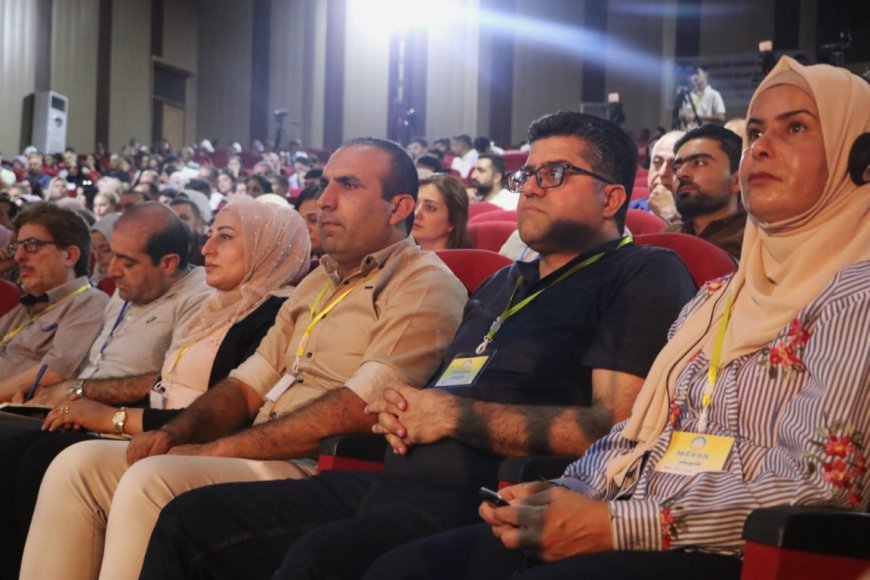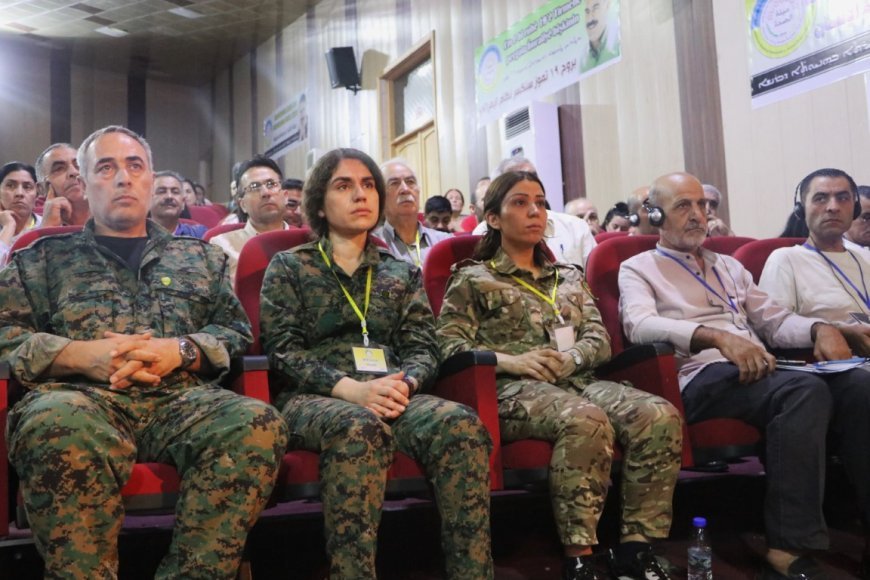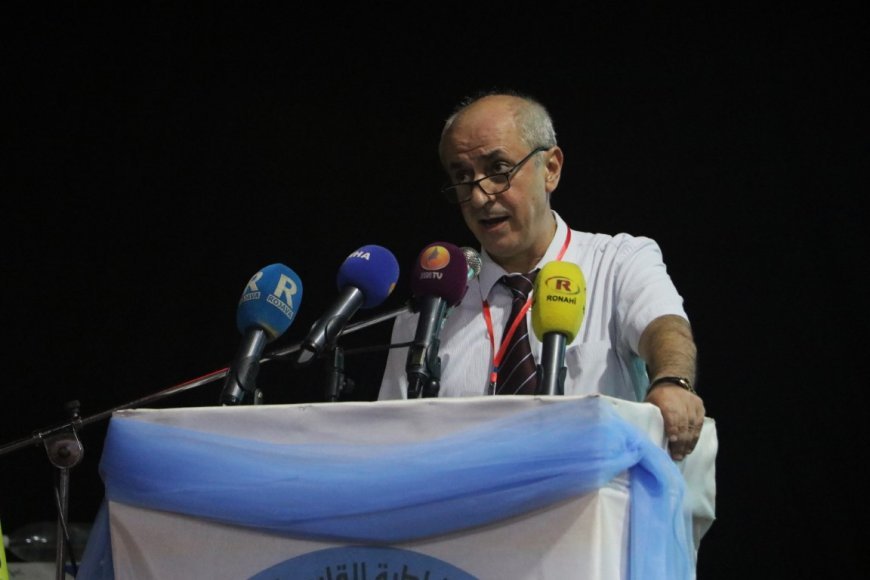Detailed report on Health Repercussions of leader Ocalan's Isolation
The conference report includes the health repercussions of the isolation imposed on the leader Ocalan included the conditions of his detention in Imrali, and a set of recommendations, including changing the leader's place of residence, conducting periodic examinations of all body, and requesting the European Committee for the Prevention of Torture to publish its visit report to Imrali in 2022.
Under the patronage of the Health Body in the Democratic Autonomous Administration of North and East Syria, the conference on the health repercussions of the isolation imposed by the Turkish authorities on the leader Abdullah Ocalan kicked off under the slogan "Isolation is the greatest threat to human health and a violation of right to life."
More than 500 people are participating in the conference, which is being held in the hall of the Sardam Cultural Center in the city of Hasaka, including doctors and delegates from the North and East Syria region from Medical Unions, the Kurdish Red Crescent, medical students at Rojava University, and human rights activists.
The report was read by the Co-Chair of the Doctors Union in NE Syria, Dr. Mustafa Abdul Karim.
The text of the report read:
"Health is defined according to the Ottawa Convention: as a fundamental right of every human being without distinction as to race, religion, political belief, economic or social status. It is defined according to the World Health Organization in 1948: as a state of complete mental, physical and social health.
Health is the basis of the continuity of life, and despite its great importance, it has received little attention in the case of Leader Abdullah Ocalan, while the legal and political aspects dominated most of the attention.
Therefore, in this section, we have shed light on the conditions of Imrali prison, in the context of Leader Abdullah Ocalan's health, and focused on the aspects of climate and isolation, as well as access to medical care. We have relied in these considerations in particular on the definitions and approaches of the United Nations (UN), the World Health Organization (WHO), and the Committee Against Torture (CPT).
Regardless of political activities, the universal right to health also applies to the case of Abdullah Ocalan. That is why we see it necessary to point out the responsibility from the medical point of view.
Climate of Imrali Island: According to the Canadian Space Agency Köppen and Geiger, the Marmara Sea is classified as warm and temperate. The average annual temperature in the Marmara region is 15.2 degrees Celsius, and there is a difference of 18.2 degrees Celsius between the warmest month in August and the coldest month in September. In summer, the island is very windy throughout the year and the humidity sometimes reaches -80-90, and it is subject to strong fluctuations, while January is the highest in terms of relative humidity, and September is the lowest, although it is still 68.86.
Humidity and air: The ideal air humidity should be between 40% and 60%, and it is important that the room humidity is slightly above 40% during sleep, because air humidity increases continuously throughout the night due to breathing air and night sweats, and excessive relative humidity directly affects the conditions and healthy atmosphere, and this leads to the spread of bacteria and other pollutants, according to the World Health Organization, long-term exposure to small viruses affects the overall health of a person.
The effects of climate on health: The direct effects on humans are distinguished, in the field of health and comfort, but also in terms of pathogens and pollutants, sensory irritants and irritation of the mucous membranes are likely to be the reason why the air is considered dry.
Pathogens and pollutants: Mold infection increases the risk of coughing, respiratory infections, atopic diseases and allergies, and that led to asthma.
The stimuli for increasing the dust content are also a problem, when the maximum humidity is maintained below 50%, the reproduction of dust mites can be greatly reduced. The effects of air conditioning on health: Air conditioners emit cold, dry air, which reduces the humidity in rooms where the air conditioner is operating for long periods, which increases the risk of infection, especially bacterial infections.
The risk of Legionella bacteria, which can colonize air conditioning and air conditioning systems, leading to acute pneumonia, must also be taken into account. Regular maintenance, including filter alteration, is essential here.
We are a competent group of doctors from the Medical Association in the north and east of Syria. Among the specialists are the following: ear, nose, throat, cardiovascular, and dermatology. After studying the situation and circumstances of Imrali and reviewing the available reports and data, we have reached the following conclusions:
Eye: With age, the number of mucous cells in the eye may decrease, causing eye dehydration. Wet areas can cause allergic infections in the eye, and in inappropriate conditions, the risk of retinal diseases, including macula degeneration and retinal detachment, increases.
Skin: High humidity can also affect the skin. While sweating is usually beneficial, high humidity can lead to increased sweat and mold production, which can cause skin redness and even inflammation. Moreover, increased sweat can also lead to dehydration of the skin.
Cardiovascular: Regarding the cardiovascular system and the changes that occur as a result of age-related diseases, we mention, particular diseases of blood pressure and coronary arteries. In addition, cardiomyopathies resulting from malnutrition, poor environmental conditions, high blood pressure, and decreased cardiac perfusion due to plaque formation on the lining of the coronary arteries can occur. This leads to narrowing of the arteries and ischemic injuries, such as myocardial infarctions, sudden cardiac arrest attacks, and dyslipidemia, also linked to aging. Periodic monthly tests are necessary to prevent angina attacks, which pose a threat to life. Undesirable results may be surprising, especially in light of poor health conditions. Heart failure is a common disease in this age group, in addition to excessive humidity and isolation. The individual needs periodic tests and routine examinations every three months, including X-rays and echocardiograms. Cardiac catheterization may be necessary to diagnose the condition and initiate treatment to prevent disasters and fatal crises.
So the nose and throat: double the hearing nerve, two tons, and dizziness due to weak dysentery; natural external ear infection due to humidity; chronic sinus infection.
Messages should be sent to the World Health Organization, organizations such as the Red Cross and the World Red Crescent, and Doctors Without Borders regarding the leader's status.
T/Satt- a-k
ANHA




















